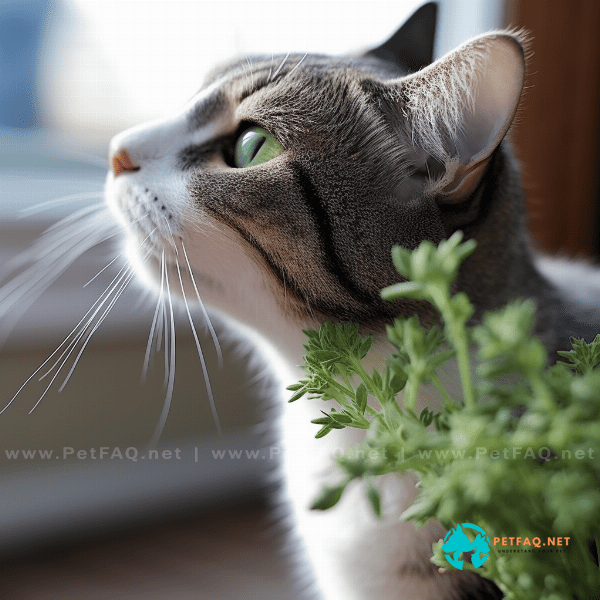Do cats eat catnip? Yes, they do. Catnip, also known as Nepeta cataria, is a herbaceous plant that is a member of the mint family. Catnip has a unique chemical compound called nepetalactone that can trigger a reaction in cats when they smell or eat it. Catnip is widely known for its euphoric effects on cats, but can it have any positive health benefits for them?
Firstly, it is important to note that the effects of catnip on cats are mainly behavioral and psychological. When cats smell or eat catnip, they may become more playful, hyperactive, or relaxed, depending on the individual cat and the amount of catnip ingested. However, catnip does not have any significant nutritional value for cats and should not be considered as a substitute for a balanced diet.
That being said, there are some potential health benefits of catnip for cats. One of the most notable is its ability to reduce stress and anxiety in cats. Many cats experience stress and anxiety in their daily lives, whether it is due to changes in their environment, separation anxiety, or other factors. Catnip has been shown to have a calming effect on cats, which can help to reduce stress and anxiety levels. This can be especially helpful for cats that are prone to anxiety-related behavioral issues such as excessive grooming, urine marking, or aggression.
In addition to its calming effects, catnip may also have some pain-relieving properties. Catnip contains a compound called iridoids, which have been shown to have anti-inflammatory and analgesic effects. These properties may help to alleviate pain and discomfort in cats, particularly those with chronic conditions such as arthritis.
Another potential benefit of catnip is its ability to stimulate the appetite. Some cats may have a decreased appetite due to illness, stress, or other factors. In these cases, catnip can be used as a natural appetite stimulant to encourage cats to eat.
In conclusion, while catnip is primarily known for its behavioral and psychological effects on cats, it may also have some potential health benefits. These include reducing stress and anxiety, alleviating pain and discomfort, and stimulating the appetite. However, it is important to remember that catnip should not be used as a substitute for a balanced diet and that its effects on cats can vary widely depending on the individual cat and the amount of catnip ingested. If you are considering using catnip as a natural remedy for your cat, it is recommended that you consult with a veterinarian first to ensure that it is safe and appropriate for your cat’s specific needs.
Read more:Do Cats Really Eat Catnip?

Related Questions
- Can timid behavior in cats be a sign of an underlying medical condition?
- How is catnip plant used in traditional and alternative medicine?
- Are certain cat breeds more prone to timid behavior than others?
- What are the different methods of cat dental tartar removal?
- How long do the effects of catnip bubbles last?
